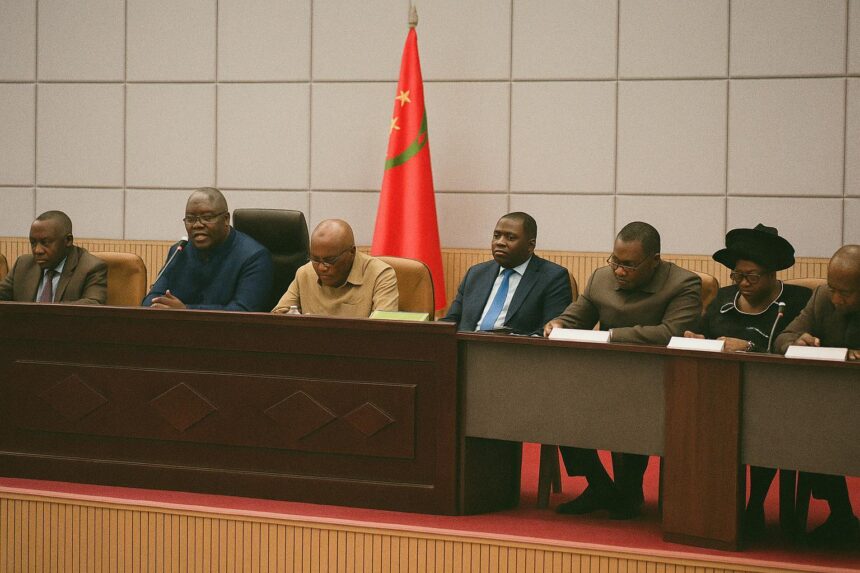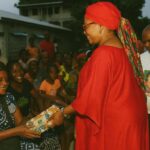Brazzaville Gathering Signals Strategic Reset
The late-July conclave at the party’s national headquarters in Mpila unfolded less as a routine consultation than as an urgent strategic reset. Secretary-General Pierre Moussa, flanked by federal president Georges Metoul and Transport Minister Ghislain Thierry Maguessa Ebomé, opened the session with an appeal to abandon “all factors of fragilisation” and to reaffirm the virtues that, in his words, have produced “one hundred percent parliamentary control” in Sangha. The choice of Brazzaville over Ouesso, observers note, underscored both the seriousness of the moment and the centre’s willingness to arbitrate local disputes (Les Dépêches de Brazzaville, 1 August 2024).
Diplomats stationed in the capital interpret the meeting as a signal to external partners that the Congolese leadership will enter the 2026 cycle with a disciplined political machine. A European envoy described the tone as “conciliatory but unmistakably directive,” adding that cohesion in the north-western department remains “a barometer for national solidity”.
Historical Weight of Sangha in National Calculus
Since the 1990s, Sangha has functioned as a strategic buffer between the coastal economic hubs and the volatile tri-border zone adjoining Cameroon and the Central African Republic. Electoral maps show that, despite its modest demographic weight, the department delivers a symbolically potent bloc of seats that reinforces the ruling party’s northern bastion (African Elections Database, 2022). In addition, timber revenues routed through Ouesso feed a local patronage network that scholars such as J.-P. Boukaka label “the fiscal cement of political loyalty”.
For President Denis Sassou Nguesso, whose national coalition relies on regional equilibrium, Sangha’s cohesion offers both domestic reassurance and an argument in conversations with international financial institutions that the political context remains predictable, a prerequisite for ongoing infrastructure financing.
Leadership Dynamics and the Role of the New Political Commissioner
Into this delicate architecture steps Michel Mahinga, newly appointed political commissioner. His mandate, according to party sources, involves monitoring the implementation of central directives and serving as an “early-warning sensor” for nascent frictions. Prefect Edouard Denis Okouya, in a message read to the assembly, warned of “sharpened knives” that must now “return to their sheaths”. Analysts in Brazzaville suggest Mahinga’s appointment reflects a calibrated blend of generational renewal and internal arbitration, designed to reassure both local elites and the presidency that Sangha will speak with one voice.
Yet the commissioner will inherit lingering grievances over resource allocation and municipal prerogatives. A senior deputy, requesting anonymity, conceded that “the music has begun to harmonise, but discordant notes persist in the orchestra pit.”
From Internal Tensions to Electoral Mathematics
The reconciliation is timed with two milestones: the sixth ordinary party congress expected before year-end and the presidential election slated for March 2026. In practical terms, a unified Sangha machinery can maximise voter mobilisation, reduce the need for costly last-minute negotiations and project an image of orderly governance to international observers (ISS Africa, 2023).
Conversely, any publicised rift could embolden opposition formations in neighbouring Cuvette and Likouala, potentially fracturing the contiguous northern stronghold that has underpinned successive PCT victories. Pierre Moussa’s insistence on “discipline we freely imposed on ourselves” thus transcends rhetorical flourish; it is an electoral safeguard.
Regional Stability and Diplomatic Outlook
Beyond partisan calculus, Sangha’s internal climate bears upon regional security. The department’s porous borders have historically facilitated informal trade but also the circulation of small arms. A coherent local administration, Western security partners argue, is essential for joint patrols along the Sangha River corridor (UN Panel of Experts report, 2023).
For multilateral actors—from the African Development Bank to Chinese infrastructure consortia—the message emanating from Mpila is reassuring: Congo-Brazzaville remains committed to institutional predictability. As one diplomat at the meeting put it, “it is easier to finance roads and fibre when the political road appears paved as well.”
In the wake of the Brazzaville conclave, senior cadres emerged with carefully worded communiqués proclaiming that past quarrels “now belong to history.” Whether that harmony endures through the high-stakes congress and the 2026 presidential ballot will hinge on the new commissioner’s mediating skill and the party’s capacity to translate reconciliatory rhetoric into everyday governance. For the moment, at least, the fiddles are tuned, and the orchestra awaits the downbeat of an electoral symphony that Sangha’s constituents—and Congo’s partners abroad—will follow with attentive ears.





















